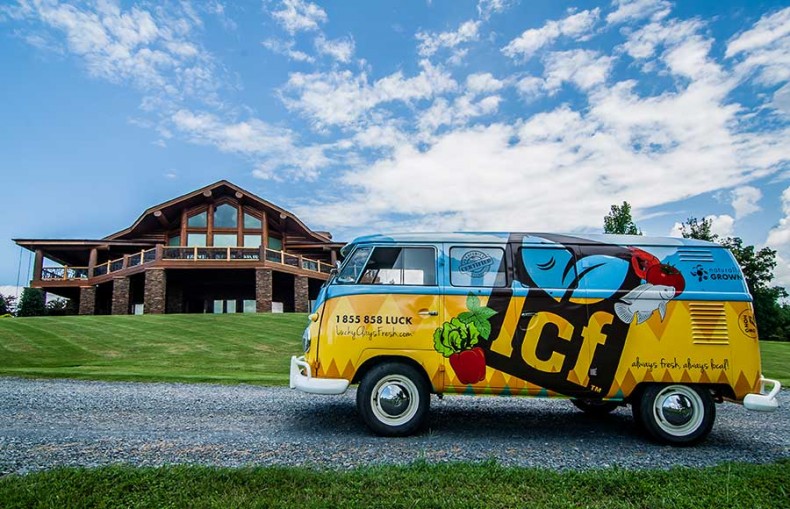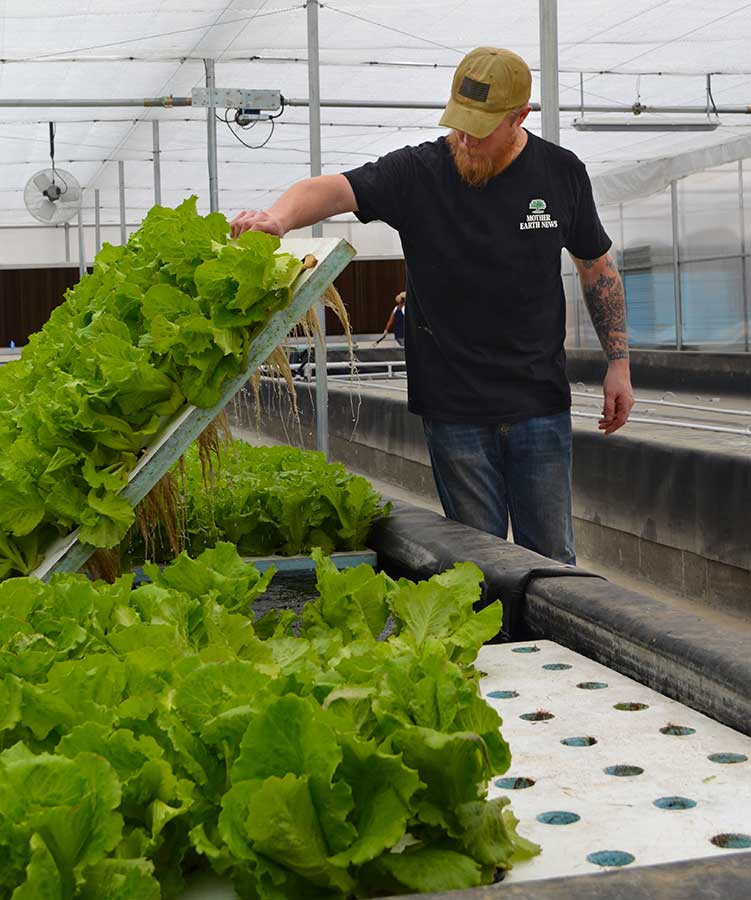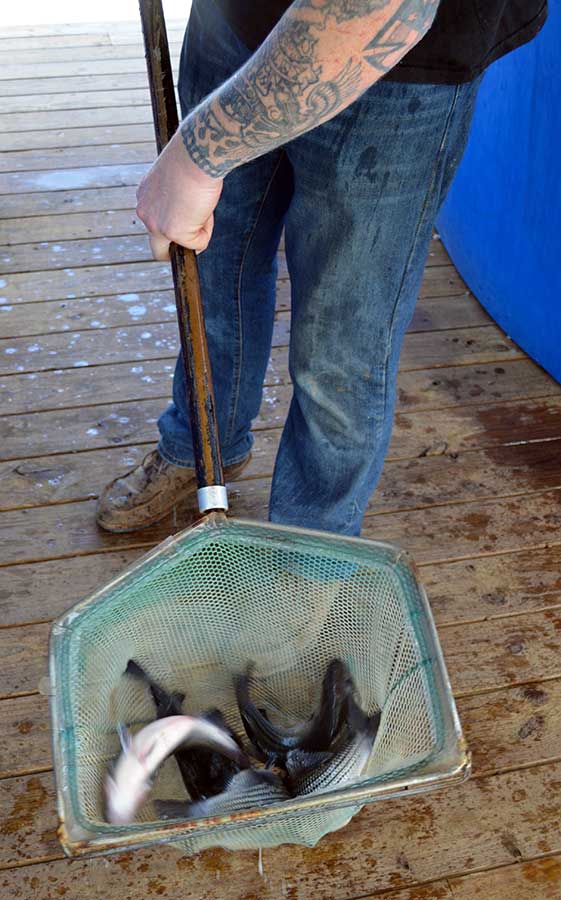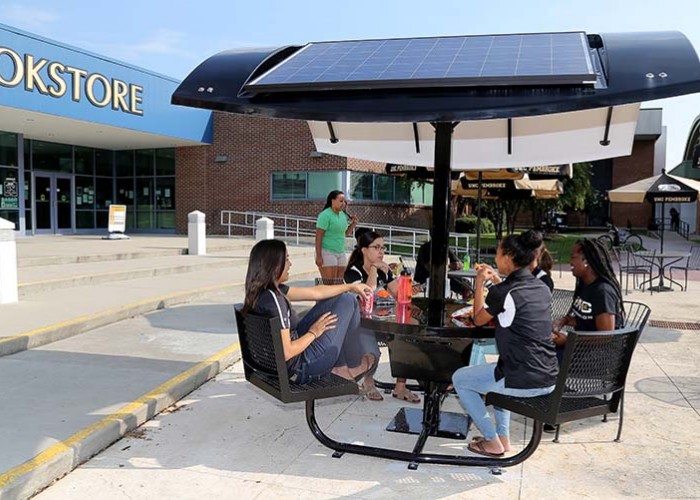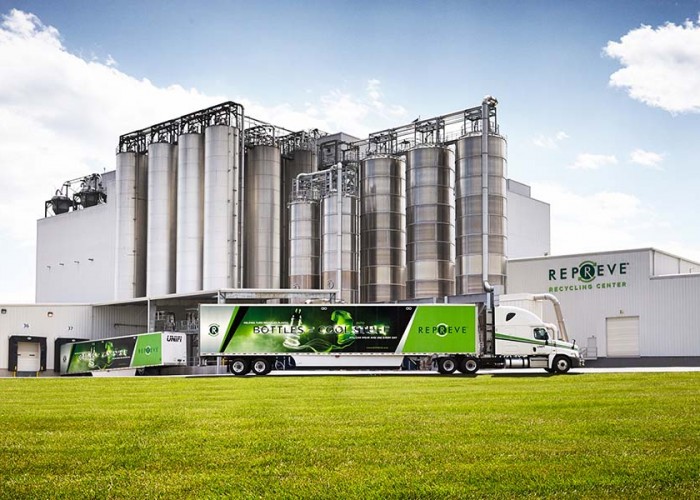Lucky Clays Farm is Growing for the Future
The Pee Dee Electric member makes sustainability a top priority
By Scott GatesPhoto courtesy of Lucky Clays Farms
On a clear, August afternoon, Bradley Todd, farm manager for Lucky Clays Fresh in Stanly County, stands in the heat of the sun explaining a nearby solar array as it quietly converts sunlight into power for the greenhouse in front of him. The panels are a part of a system that all works together to grow crops — currently basil and butterhead lettuce — and raise fish for distribution to grocery stores and restaurants in the Charlotte area.
It’s hot, the kind of late-summer heat that might make an outdoor crop of basil toughen and go to seed, but in the controlled environs of the greenhouse, the plants are thriving.
“Our main concerns are keeping the greenhouse temperatures controlled [for the crops] and the water moving [for the fish],” Todd explains. In doing so, Todd and his team are constantly searching for more sustainable and efficient technologies, including a patent-pending HVAC gasification system unique to the farm. “Big things are made up of little things. We are trying to really dial in on the little things to make them as efficient as possible.”
That mentality permeates all operations at Lucky Clays Fresh, as well as its sister-brand, Lucky Clays Farm. The facilities supporting crop and fish production stand across the road from more expansive grounds with log cabins, stocked ponds, a conference center, wellness center and a state of the art clay-shooting facility (hence the “Lucky Clays” name), all fanning out over 500 rolling, wooded acres. Sustainable practices are put to use throughout it all.
Long on renewables
The hub of the Lucky Clays Farm property is a stately log cabin set on a hill, where sustainable technology and design have earned it a few bragging rights. The house is LEED Gold Certified (Leadership in Energy and Environmental Design) by the U.S. Green Building Council, achieved by implementing sustainability throughout construction and design (Read about a LEED Certified school). The house also is connected to the largest private, residential renewable energy system in North Carolina, made up of a 35-kW solar panel array and a 5-kW wind turbine tied to a battery back-up system.
Other on-site power sources pepper the farm, including a total 115 kW of solar photovoltaic capacity in addition to the panels at the main house. The farm is a member of Wadesboro-based Pee Dee Electric, and the cooperative has an agreement in place to take on any surplus power produced by the farm’s systems.
“Working with Lucky Clays Farm has afforded Pee Dee Electric not only the opportunity to engage in a variety of renewable energy sources, but we’ve also been able to share that knowledge with other electric co-ops and integrate what we’ve learned into programs such as Kenan Fellows,” says Pee Dee Electric CEO and Executive Vice President Donnie Spivey. “We’re extremely appreciative of the relationship that we’ve developed with the staff at the farm and look forward to continuing that relationship in the future.”
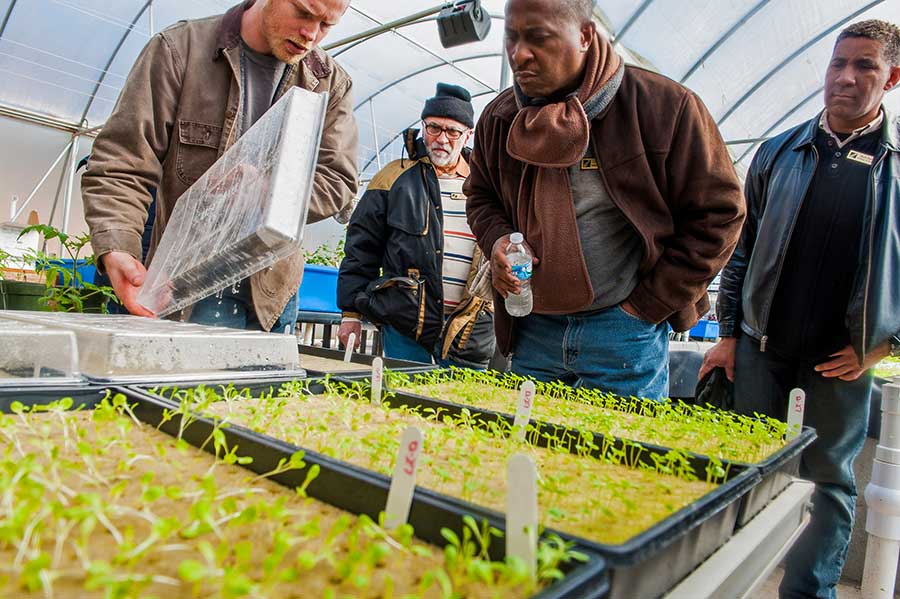
Todd lifts a seedling humidity cover during a tour of the Lucky Clays Fresh greenhouse (Photo courtesy of Lucky Clays Farms)
Pioneering food production
Back in the greenhouse, Todd lifts a pallet of mature lettuce to expose a thick root system, dripping water into a dark pool below. All produce is grown in long hydroponic beds such as this one. Nutrients flow in from an organic source — filtered byproducts from the nearby fish tanks — creating an “aquaponics” system, incorporating aquaculture and hydroponics.
The team started work on the system in 2012, researching fish varieties that produce waste with nutrients most complementary to selected crops. They started with tilapia, and have since introduced bass and rainbow trout.
“A couple of things that are important to me are science and sustainability,” says Judy Carpenter, the founder and owner of Lucky Clays Fresh and Lucky Clays Farm. “We feel like, in a world with increasingly limited resources, this is going to be the most efficient way to produce food. We want to be first.”
The facility has the potential to produce 40,000 pounds of fish, 480,000 units of produce and 10,000 pounds of shrimp annually, with plans to expand and double production by 2020.
Lucky Clays Fresh is open about its processes and offers a four-day Aquaponics workshop, covering commercial system design, construction, and system maintenance.
“We really break it down into extreme detail,” Todd says. “Somebody could walk in and have never had a pet fish in their life, or have grown a plant, and we’ll take them all the way to knowing how to comply with USDA food safety regulations.”
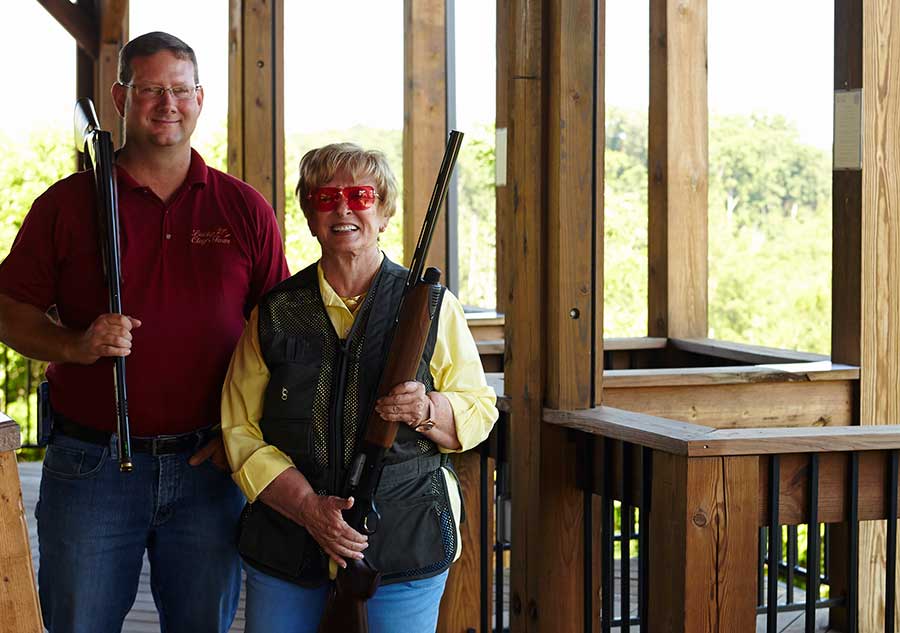
Lucky Clays owner Judy Carpenter (right) with COO Jean-Paul Abel at the Five Stand (Photo courtesy of Lucky Clays Farms)
Clay shooting roots
Carpenter grew up 45 miles west of the farm in Charlotte and is the retired board chairman of National Welders Supply Co. (purchased by Airgas), which her father founded. Her talents are as diverse as the farm she’s created: she’s a savvy business manager, welder, and award‑winning trap and field shooting expert — frequenting the pages of Trap & Field magazine in the 1970s.
Her passion for trap shooting has materialized on the Lucky Clays property she initially purchased in 2009. An open-air Five Stand provides guests with 14 different machines to pull from.
To manage it all, over time she’s brought on her current staff of 19, who are constantly dreaming up new ways to utilize the property. Outside of food production goals, future plans include increased lodging for group events and increased interaction with the community through exercise classes at its wellness center, many targeted to benefit those with Parkinson’s disease.
“What Lucky Clays is today, and what we will become, is not my idea,” Carpenter explains. “I got it started, but everyone here puts in their thoughts on how we grow.”
Learn more about Lucky Clays on their websites: Lucky Clays Fresh and Lucky Clays Farm.
-
Innovating across North Carolina
-
Share this story:

